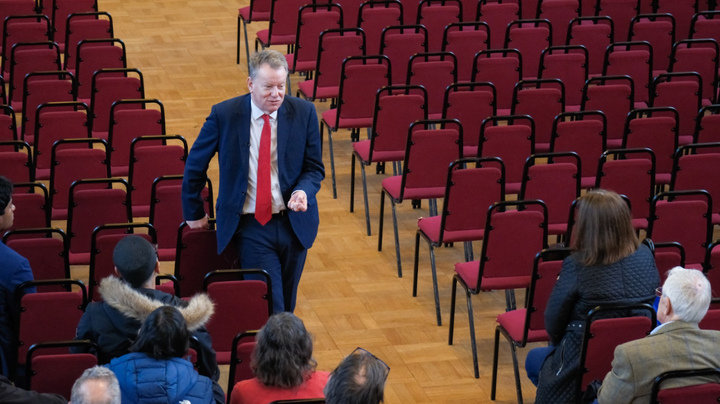May ’68: The roots of social change in France or a short-lived fantasy?

Otto Bajwa Greenwood
54 years on from the seditious revolution, which rather farcically began over issues regarding gender mixing in dormitories, France seems less tolerant than ever. May 1968 took France by storm, scrutinising the deeply conservative and patriarchal systems of government under Charles de Gaulle. At the time, many of the participants felt the rebellion embodied the global landscape of social and political discontent, allowing for a new generation of liberal ideas to ground themselves in society. However, the resurgence of conservative and far-right ideas in France, questions not only the tangible effects of this ‘turning point’ on French society, but whether the revolution possessed any form of longevity. Do many of the ideas still ring true with the affected working class of France, or has the political system suppressed any form of restlessness and acted as a graveyard for the cries of the many? Rather worryingly, it seems as if the former slogan, ‘All power to the imagination’ contributes to the romanticisation of ’68, but the very real struggle which it originally signified is rarely embraced.
France’s leading Newspaper, Le Monde, pronounced just 6 weeks before May ’68, that the country was ‘bored’. This notion of boredom observed by the Newspaper erupted out of French reluctance to join the youth protests in German and the US regarding the Vietnam war. However, in contrast with this synecdoche of French social thought, political malcontent seemed ever-present. February 1968 saw the crucial merging of the French Communists and French Socialists, who formed an electoral alliance in order to replace the deeply conservative President Charles de Gaulle. Already having been in power for 10 years, the entrenched patriarchal society led by de Gaulle seemed to be falling behind the new liberal ideas of the youth. The French student population had essentially trebled from 175,000 to 500,000. This new youth culture was preoccupied with raising the position of women and focusing on gay rights, veering away from norms bound with archaic tradition.
Around 150 members of far-left groups, along with a small number of prominent poets and musicians, occupied a building at Paris University at Nanterre in 1968. During the meeting, a variety of social issues were raised such as class discrimination, political control of the university, calls to free students arrested at an Anti-Vietnam protest, and protests over rules which did not allow students of different genders to spend a night in each other’s dormitories. Following a series of conflicts between the students and the University, the administration temporarily shut down the Nanterre University on 2nd May 1968.
The consequent closure of Nanterre brought about marches to the Sorbonne Campus of the University of Paris, which were met with resistance and the arrests of around 600 people. However, May 6th marked the day when the revolution really started to gain some traction. The national student union (UNEF) and the Union of University Teachers called for a march to protest the police invasion of Sorbonne, and managed to rally 20,000 students, teachers, and general supporters. One of the emblematic objects of the revolution was the cobblestoned streets, epitomised by the popular slogan: ‘Sous les paves, la plage’ (‘under the paving stones, the beach’). Here the paving stones, and sand underneath them, encapsulated the movement’s view on urbanisation and modern society in both literal and metaphorical forms.
The 10th-11th May – the Night of the Barricades – illustrates the point where the university-based protest movement engulfed the whole of France. Major left union confederations directed the resistance to bring about positive reforms, subsequently organising a one-day strike on the 13th of May. By the 3rd week of May around 10/11 million workers were on strike (about 22% of the entire population of France). To add to a general feeling of victory, de Gaulle fled France on 29th May, telling his Prime minister “I am the past; you are the future; I embrace you”.
But, despite the upheaval, only a day later de Gaulle returned and announced his refusal to resign. Furthermore, he broadcast that an election was to be held on 23rd June, and ordered workers to return to work, threatening to institute a state emergency if they did not - all while having subtly leaked to the media that the armed forces were just outside Paris. Following de Gaulle’s speech, over 800,000 supporters marched through the Champs-Élysées waving a national flag – a rally planned several days beforehand. Moreover, in this election de Gaulle’s Party had the greatest victory In French Parliamentary history. It seems as if the revolution ended almost as fast as it had erupted.
Ultimately, the consequences of the May ’68 revolution have been typically seen as a success, although ambiguously hailed by Alain Geismar (one of the leaders at the time) as only successful “as a social revolution, not a political one”. It was believed that the revolt had proved monumental in deepening respect for diversity and freedom, marked by the ability of students who returned to class to ask questions and dispute ideas. Sexual liberation was on the rise, and it is reported that the general sense of fraternity, one of the social pillars upon which France is built, had retuned. But why did these feelings of unity dwindle so swiftly and why is modern France now such a hotbed of the political right? French National Front leader, Marine La Pen’s campaign is one rooted in the antisemitic traditions started by her father. Despite her efforts to distance her party from the racist inflections established by Jean-Marie La Pen, vast waves of xenophobic supporters and general bigotry from Marine, wash over any claims that the party is simply for the protection of French identity. The move to the right of France points towards a collective amnesia of past events, largely negating any of the positive social reforms brought about by May ’68.
May ’68 presents one of the most memorable and potent experiences within people’s lives. However, rather than progress moving forward from the starting point stimulated by that Revolution, it seems these days that many French people want to burrow back into their caves of individuality. It is easier to blame others, calling for a return to French values, rather than questioning why those values are there in the first place.




Comments ()